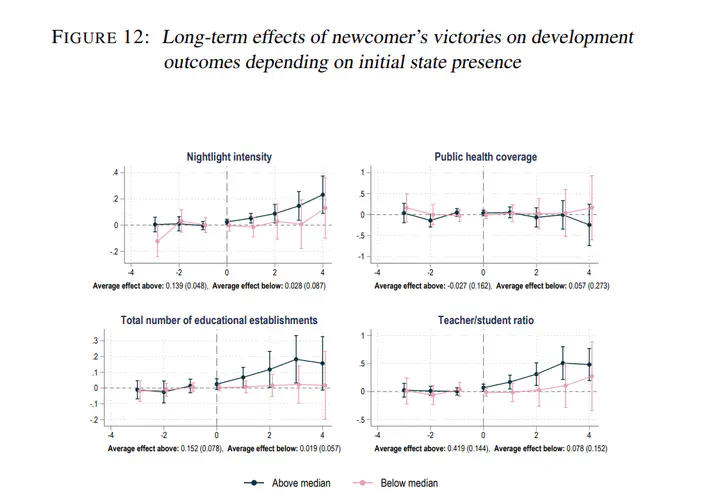A Conditional Iron Law of Oligarchy: Evidence from Colombia

Abstract
We document and investigate the consequences of the entry into Colombian politics of newcomers - those who have not held previous political office. Using a regression discontinuity design and an event-study analysis, we find that newcomers are associated with significant improvements in public policies, but only in places with relatively low inequality and violence and high state presence and fiscal autonomy. We interpret these findings as consistent with newcomers having distinct preferences from previous incumbents, but acting according to them depending on the potential for corruption, the weakness of institutions, and the threat of violence.